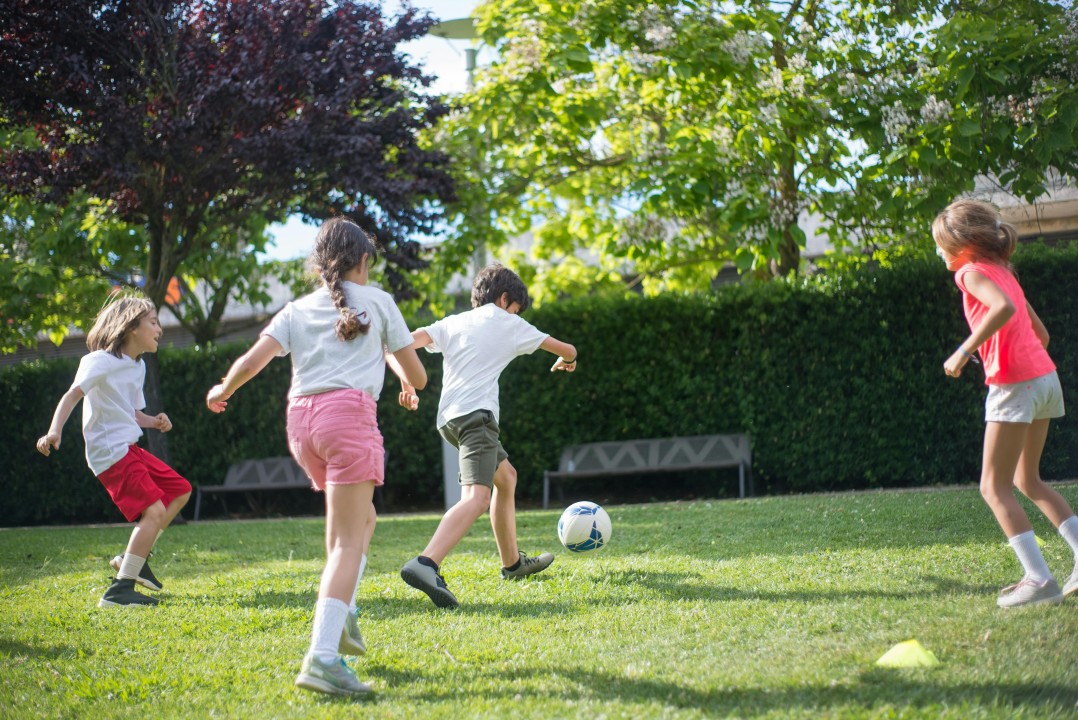
If you have a football-crazy kid, you will know that most of their time involves kicking a ball around. Football, Tennis ball, or any round object will usually do!
School is not always as fun, but undoubtedly more important, so as parents, you might find football an unwanted distraction away from your child's education.
While that can be true in some cases, you may be surprised to hear that football can actually help in the classroom.
How? We hear you ask! Let us explain.
Exercise increases blood flow to the brain, providing oxygen and nutrients and improving cognitive functions such as memory, attention and concentration, which are crucial in retaining information taught at school. 1
Walking, running and jumping are cardio activities that help with this, and football includes all three. By playing regularly, you are training the brain and the body.
Looking back on the last 5-6 years in English football, Manchester City have dominated their competition. Pep Guardiola is a huge factor in that success due to his ability to translate ideas to his players better than most other managers in the league.
To their credit, the team has brought those ideas to life on the pitch, and to do that, they must be in perfect unison, which requires constant dialogue to ensure everyone is doing their job.
There are often moments in school when your child must communicate effectively with a teacher or the rest of the class, either in group projects or demonstrations.
Football can be a valuable tool in building confidence in this area, as you are encouraged to speak with your teammates regularly in training and matches.
Even if your child is too young for team football, taking instructions from a coach or talking to their friends at training is all practice of verbal and non-verbal communication that filters into school life. 2
Instilling self-discipline from a young age is so crucial for a child’s development.
Not only does it lead to emotional maturity, but it also helps them to make the correct choices. 3 Moreover, self-control in the classroom will lead to avoidance of distractions that can be very harmful in an educational environment.
Learning new skills, routines and techniques in football also requires a high level of self-discipline, as does sticking to a schedule that involves weekly sessions outside of school. When you get further along in the game, you begin training in specific tactical positions where you must also maintain your discipline on the pitch.
A small word of warning. Self-discipline does not always mean a tidy room, but there is probably a slightly higher chance!
We all know in football, the aim is to score more goals than your opponent, but personal goals are where the real rewards lie.
For younger children, admittedly, this will not lie high on their list of priorities, but having targets to aim for and a feeling of achievement can influence their future sense of direction, motivation and purpose.
When playing football, you have a mixture of personal and team-oriented goals which you work towards. These goals breed a positive attitude towards other targets in life, such as education.
Football can be hugely beneficial when striking the right balance between play and studies.
With the Family F.C. app, we will help you find that sweet spot through fun pre-planned sessions that you can work around school and home life.
And now that you've heard about all the positives that football brings, you probably cannot wait to get out with the kids, right?
Head to familyfc.com to download the app and start your footballing journey today!
Works Cited
Wikipedia, https://www.verywellfamily.com/importance-of-teaching-kids-self-discipline-1095017. Accessed 31 May 2024.
Bowley, Ceri. “How football helps players to develop life skills.” England Football Learning, https://learn.englandfootball.com/articles-and-resources/coaching/resources/2022/How-football-helps-players-to-develop-life-skills. Accessed 31 May 2024.
“Physical Activity Improves Brain and Cognitive Functions | Extension | University of Nevada, Reno.” University of Nevada, Reno Extension, https://extension.unr.edu/publication.aspx?PubID=2921. Accessed 30 May 2024.